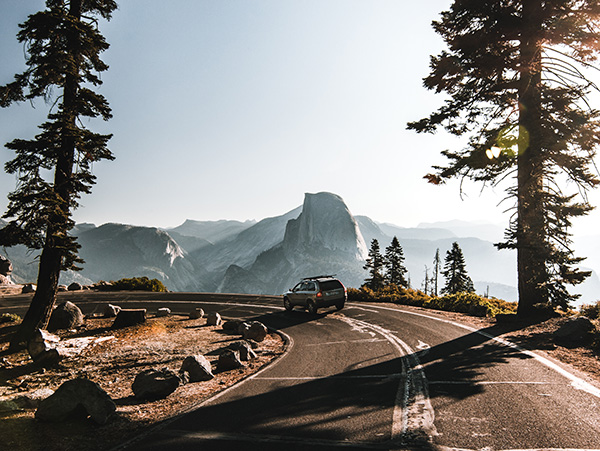
Driving from one side of the country to the other is more than just a long trip—it’s a true test of your vehicle, your patience, and your preparation. As a repair shop owner, I decided to take the opportunity to drive cross-country between Nevada and North Carolina not just for the adventure, but also to observe how vehicles behave over long distances and in different conditions.
Here are some valuable insights and lessons from the journey, aimed at helping you get more out of your vehicle on long road trips and beyond.
Pre-Trip Inspections Are Worth Every Minute
Before hitting the road, I give my vehicle a full inspection. That included checking fluids, belts, hoses, tires, brakes, and filters. What I realized early on is that many road breakdowns can be avoided with simple preparation. Drivers often assume their car is fine if nothing feels wrong, but long-distance driving places a different kind of stress on your systems.
For example, a tire that’s slightly underinflated might be fine for daily driving but can overheat and blow out after hundreds of highway miles. Similarly, a belt with minor wear can snap in the middle of nowhere if it hasn’t been checked.
Whether you’re driving across the state or across the country, a multi-point inspection before departure is a smart move.
Highway Driving Isn’t Always Easy on the Car
While highway driving is typically gentler on brakes and transmissions due to steady speeds, other parts of your vehicle take more of a beating. The engine runs hotter for longer, your tires are in constant motion, and your cooling system is under continuous strain.
Crossing through the desert in Nevada, I saw how important proper coolant levels and radiator performance are. In the Carolinas, with their sudden rainstorms and humidity, I was reminded how important working wipers and good tire tread can be. Your location matters more than most people realize.
Fuel Quality and Octane Can Vary
One unexpected lesson came from refueling in different regions. Not all gas stations offer the same fuel quality, and I noticed some performance inconsistencies when using lower-quality fuel. For vehicles that require premium gasoline, especially high-performance or turbocharged models, filling up with the right octane is essential.
If your engine starts knocking or feels off, the fuel might be the culprit. Pay attention to how your car behaves after filling up in unfamiliar areas, and try to stick to known fuel brands when possible.
Road Conditions Shift from State to State
Not all roads are created equal. Some highways are smooth and newly paved, while others are full of potholes or uneven surfaces. Suspension systems take a beating during long road trips, especially when conditions are rough.
I encountered stretches of road where even well-maintained vehicles would experience some rattling or bounce. It reminded me how important shock absorbers, struts, and tire alignment are for a comfortable and safe trip. If your car feels rough or drifts on the highway, a suspension or alignment check should be on your radar.
Vehicle Comfort Makes a Big Difference
When you're spending 8 to 10 hours behind the wheel each day, small discomforts become major annoyances. I gained a new appreciation for working A/C, ergonomic seat support, and functional infotainment systems. On long hauls, having working charging ports, navigation, and climate control makes a big difference in reducing driver fatigue.
If you plan a long road trip, it’s not just about the engine and brakes. Make sure your comfort systems, like air conditioning, seat adjustments, and even sun visors, are in good shape too.
Technology Is Helpful, But Not a Substitute for Awareness
Modern driver-assistance features like adaptive cruise control and lane-keeping assist were helpful tools, especially during long stretches. But I also noticed that relying too much on these features can dull your awareness. Fatigue is real, and while these systems help ease the strain, they are no replacement for taking breaks, stretching, and staying mentally alert.
Plan your stops, hydrate regularly, and pull over if you start to feel tired. Technology is a tool—not a solution.
Post-Trip Maintenance Matters Too
After arriving in North Carolina, I inspected the vehicle again. Long trips often reveal minor issues like fluid loss, uneven tire wear, or something else. Doing a post-trip checkup ensures your car recovers from the journey and is ready for daily use again.
It’s also a great time to check your oil, especially if your trip added several thousand miles. Even if you’re not due for a full change, topping off low fluids or checking for contamination can prevent long-term problems.
Final Thoughts From the Road
A cross-country trip can teach you a lot—not just about the country, but about your car. Your vehicle works harder than usual, and every system plays a role in keeping you safe and comfortable.
Whether you're planning a long trip or just curious about how to better maintain your car, taking lessons from real-world driving experiences can make a big difference. At The Car Guys, we use insights like these to guide our service recommendations and keep our customers better informed.
If you’re preparing for a long drive or just returned from one, stop by for a full inspection. Our team in Nevada and North Carolina is here to make sure your vehicle is ready for every mile ahead.
- 10177 West Charleston Blvd. Suite P Summerlin, NV
- 7786 W. Sahara Ave. Las Vegas, NV
- 6311 Carolina Beach Rd. Wilmington, NC
- 8006 Market St. Wilmington, NC